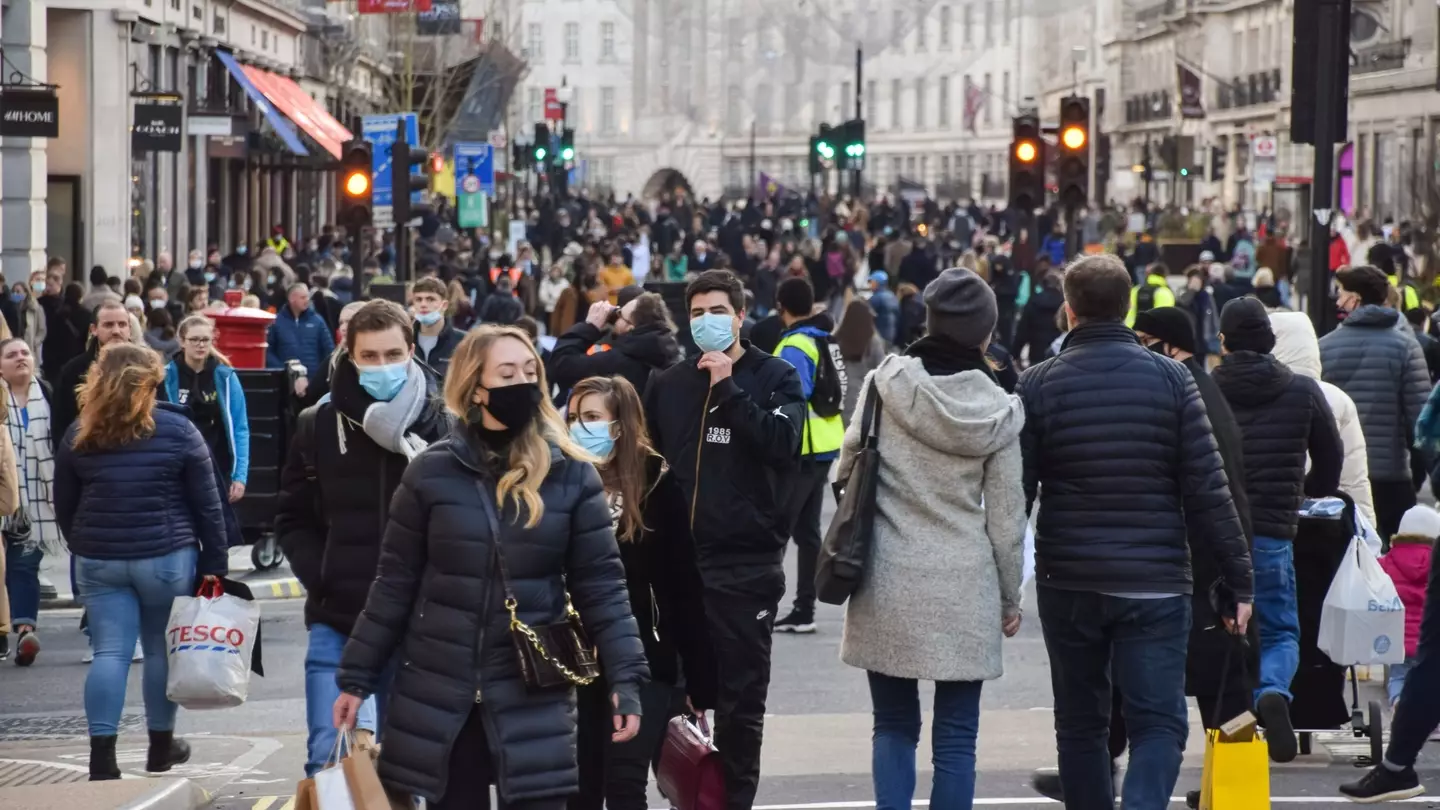
The UK Health Security Agency (UKHSA) has recommended that people think about wearing a mask if they need to go outside due to the rise of four particularly nasty diseases.
With the days getting shorter and the nights longer, we're in for colder weather and the kind of conditions certain sicknesses thrive in.
Some viruses do better in the colder temperatures, while people tend to congregate inside more often which makes it easier to spread a sickness to someone else.
Meanwhile, the drop in temperatures makes it harder for your body's immune system to tackle any illness which tries to take hold of you, crafting the perfect cocktail for diseases to spread quickly.
Advert
The UKHSA has warned about four diseases that are expected to rise and given people a checklist of measures they can take to help prevent the spread.
.jpg)
If you're feeling unwell then you should stay home, keep washing those hands, cough and sneeze into a tissue to avoid spewing germs onto your hand and open a window if you're meeting other people indoors.
It also recommended that you 'consider wearing a mask if you need to go out', and plenty of people will still have some from the coronavirus pandemic days.
The flu
There's always an uptick in cases of the flu around the winter, though you might not realise it at first as many of the symptoms of these annoying illnesses seem quite similar at first.
Advert
You might have a hard time telling the difference between it and a cold in particular, but the flu is far more serious and will have you really going through it.
Flu symptoms include a sudden fever, muscle aches and pains, a dry and chesty cough, excessive sweating and a feeling of exhaustion which makes you want to lie down.
The BMJ warns that the UK is facing an early wave of flu this year with cases already on the rise.
Covid
The pandemic may be over but Covid is here to stay and there's some new variants to contend with.
Advert
Currently you need to watch out for the the XFG.3 strain and the NB.1.8.1 strain, known as 'Stratus' and 'Nimbus' respectively.
Both strains put you at the risk of symptoms including shortness of breath, chest tightness, sore or scratchy throat, headaches, body aches, upset stomach, nausea, and loss of taste or smell.
The experts say that Stratus appears to be better at avoiding your immune system defences, while Nimbus can give you a sore throat which people have compared to 'swallowing razor blades'.
The UKHSA warned that positive cases of Covid had risen from 7.6 to 8.4 percent in only a week, meaning it's important to protect yourself and to not assume that since pandemic lockdown measures are over it means the danger has passed.
Weekly deaths from Covid rose to 100 earlier this month, so there's a reason why the UKHSA has been suggesting people dig out their old masks.
Advert

Respiratory syncytial virus
This disease, also known as RSV, is most dangerous towards young children and the elderly.
The symptoms of a runny nose, coughing, sneezing and a high temperature could be mistaken for a cold or flu, but it can cause a more serious infection where your cough gets worse and you have difficulty breathing.
Pneumonia or bronchiolitis are both risks if you get RSV, and according to the NHS older people who get RSV may also experience 'confusion'.
Advert

Cold
This is the one you're most likely to get since it's often referred to as the 'common cold' and UKHSA data has indicated that cases of the cold have been rising since the start of September.
It's also the mildest sickness of this quartet you can get and should clear up within a few days, though a particularly nasty bout of the cold can knock you on your backside for a bit.
A cold is making people sick at a time when lots of other people are coming down with different things, putting an extra burden on healthcare providers.
Topics: UK News, Health, Coronavirus, Weather, NHS